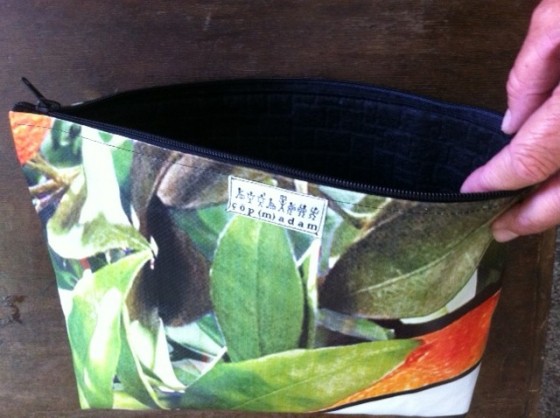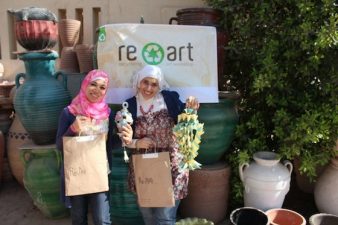 Turning trash into art and employing women who have never worked for pay before — two difficult tasks that Turkish company Çöp(m)adam accomplishes at once.
Turning trash into art and employing women who have never worked for pay before — two difficult tasks that Turkish company Çöp(m)adam accomplishes at once.
Turkey’s recycling culture is largely unseen. Recycling is usually carried out by poorly compensated workers who salvage reusable materials from trash collected by the municipality and take them to recycling centers. But one Turkish company is raising the profile of recycling in Turkey, making trash into beautiful objects and paying Turkish women a decent wage to do so.
Çöp(m)adam, meaning “garbage (wo)man” in Turkish, plays on the idea that trash collecting is only for men. In fact, all of Çöp(m)adam’s employees are women who have never earned a salary before.
Longtime Turkey resident Tara Hopkins founded Çöp(m)adam three years ago as an experimental project to promote recycling and address the problem of female under-employment in Turkey.
“For our own employees, Çöp(m)adam is the only source of income,” Hopkins told Green Prophet in an e-mail interview. “A prerequisite to work with us is that you can never have worked for salary before. For the households, for some, this is their main income, for others, it is a supplement.”
At the company’s headquarters, in the Aegean coastal town of Ayvalık, approximately 60 women are currently working to make handbags and occasional other accessories out of landfill. Ten more employees work at a second center in the southeastern city of Diyarbakır.
Çöp(m)adam joins a growing tradition of women’s organizations in Turkey that are working to improve the environmental health of their country. FEMİN-ART, for example, a female artists’ association in the Black Sea city of Trabzon, was awarded funding to produce organic paints and distribute them for free last year.
Eco justice as well as gender justice
The primary materials used in the bags, according to Hopkins, are packaging such as potato chip and instant soup packets, industrial felt, juice packs, grain and flour sacks, and plastic bags.
Over the past two years, more than 20 tons of waste have been turned into thousands of Çöp(m)adam products. The multinational consumer goods company Unilever is Çöp(m)adam’s main sponsor, and has donated its waste and PR services to raising awareness about the company. Within Turkey, Sabancı University contributed to the project via its civic involvement program, which Hopkins also launched.
The products can be purchased at Çöp(m)adam’s centers, at various outlets throughout the world, or online, at eco-friendly shopping sites such as namaste, and at various Turkish shopping sites (a full list is available at the bottom of this page).
Read more about eco-friendly projects like Çöp(m)adam:
Ugly Plastic Window Shutters Become Chic, Minimalist Furniture Pieces
Make Your (Book) Mark With Plastic Bags
Rothko-esque Plastic Bags Go From Rubbish to Relevant
Image via copmadam.wordpress.com




Comments are closed.